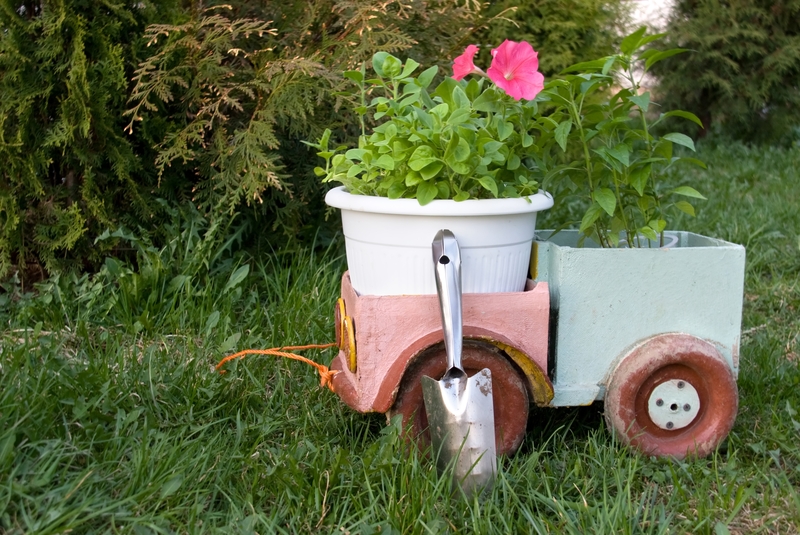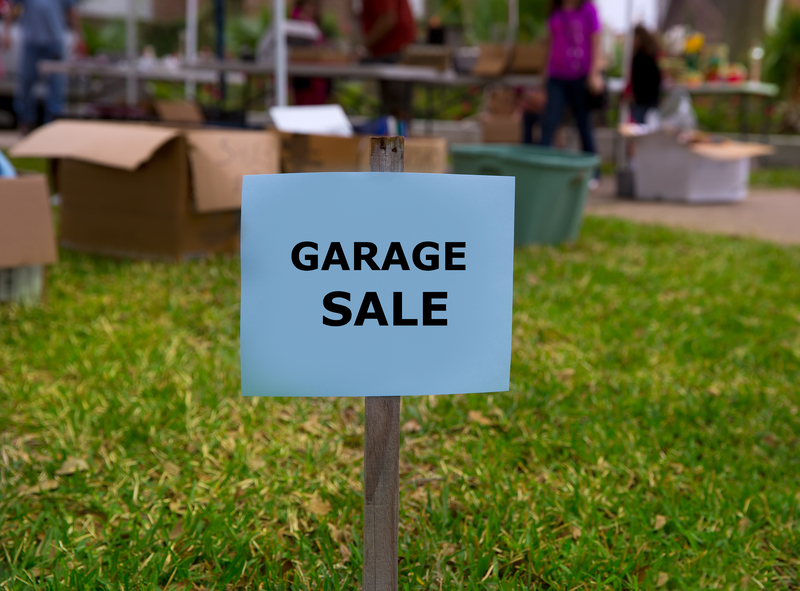Simple Habits to Decrease Your Plastic Footprint
Plastic pollution is one of the most urgent environmental issues facing our planet today. Each year, millions of tons of plastic waste find their way into landfills, waterways, and oceans, causing harm to wildlife and contaminating ecosystems. While governments and businesses play a pivotal role in tackling plastic pollution, individuals hold incredible power through their daily choices.
In this comprehensive guide, you'll learn about simple and effective habits to decrease your plastic footprint. By making small, mindful changes, you can reduce your reliance on single-use plastics and inspire others to join the movement for a cleaner, greener planet.
Understanding Your Plastic Footprint
Before diving into practical solutions, it's important to understand what a plastic footprint is. Plastic footprint refers to the total amount of plastic waste an individual, community, or organization generates. This includes everything from food packaging to personal care products, shopping bags, and beyond.
Reducing your plastic usage is not about perfection. Instead, it's about progress - making consistent, incremental changes that, over time, add up to a significant positive impact.

Why Reducing Your Plastic Footprint Matters
- Protects wildlife: Animals often mistake plastic debris for food, which can be deadly.
- Cuts down on pollution: Reducing plastic waste decreases land, water, and air pollution.
- Supports sustainable production: Choosing alternatives increases demand for non-plastic options.
- Saves energy and resources: Manufacturing plastic is resource-intensive and polluting.
Simple Daily Habits to Lower Your Plastic Usage
With so many plastic products in our lives, it can be overwhelming to know where to start. The key is to begin with small, manageable habits. Here's how you can decrease your plastic footprint through easy changes:
1. Bring Your Own Bags
One of the most straightforward ways to cut down on single-use plastics is to switch to reusable shopping bags.
- Invest in sturdy, washable fabric totes.
- Keep a foldable bag in your car or backpack for spontaneous shopping trips.
- Don't forget produce bags! Reusable cotton or mesh bags are perfect for fruits and veggies.
2. Say No to Single-Use Plastics
Create a habit of refusing single-use plastic items when possible.
- Politely decline plastic straws and utensils, and choose reusable or biodegradable alternatives.
- Opt for beverages in glass bottles or cans over plastic ones.
- If ordering takeout, ask restaurants not to include plastic cutlery or sauce packets.
3. Switch to a Reusable Water Bottle
Bottled water is a massive contributor to plastic waste. Make the switch to a high-quality, refillable bottle made from stainless steel or glass.
- Save money and reduce waste by refilling at home or water stations.
- Use an insulated bottle to keep drinks hot or cold for hours.
4. Embrace Bulk Buying and Packaging-Free Shopping
Many stores now offer bulk bins for grains, nuts, snacks, and spices. Bring your own containers and fill up on just what you need. Bulk shopping reduces both plastic packaging and food waste.
- Visit local farmers' markets where produce often comes loose and plastic-free.
- When shopping online, look for eco-friendly vendors who use minimal or compostable packaging.
5. Choose Glass, Metal, or Paper Over Plastic
Whenever you have a choice, opt for products packaged in glass, metal, or paper, as these materials are more easily recycled or biodegradable.
- Buy milk in glass bottles, condiments in glass jars, and drinks in cans.
- Select paper-wrapped or boxed products instead of those encased in plastic.
Smart Kitchen Swaps to Reduce Plastic Waste
The kitchen is often the biggest source of household plastic waste. Here's how to minimize it:
1. Store Food Without Plastic
- Use glass containers or stainless steel tiffins for leftovers.
- Replace plastic wrap with beeswax wraps or silicone lids.
- Use cloth produce bags for fresh fruits and vegetables.
2. Buy in Bulk and Cook at Home
- Cooking from scratch typically uses less packaging.
- Buy larger quantities of staples (like rice or pasta) in recyclable packaging to cut down on single-use packets.
3. Use Refillable Cleaning Products
- Switch to cleaning products that come in bulk concentrate or tablets.
- Invest in refillable bottles for dish soap and surface cleaners.
Plastic-Free Bathroom Routine
Personal care products are often loaded with unnecessary plastic packaging. Take these steps to reduce your plastic consumption:
1. Try Bar Soaps and Shampoos
- Solid shampoo, conditioner, and soap bars come with minimal or no plastic packaging.
- Look for products wrapped in compostable or recyclable materials.
2. Choose Bamboo Toothbrushes
- Bamboo toothbrushes are fully biodegradable and an easy swap.
- Dental floss made from silk or biodegradable materials is another good option.
3. Experiment with DIY Beauty Recipes
- Make your own scrubs, masks, and lotions using natural ingredients in reusable containers.
- Many recipes are simple and can be tailored to your skin type.
At-Work Strategies to Lower Your Plastic Footprint
Even at work, you can decrease your plastic waste with these strategies:
- Bring your own coffee mug and reusable cutlery to the office.
- Store snacks in glass jars or reusable bags rather than single-serve packs.
- Use refillable pens and office supplies wherever possible.
Travel and On-the-Go Tips for Reducing Plastic
- Pack a set of travel cutlery and a metal or bamboo straw.
- Carry a reusable coffee cup and water bottle for drinks on the move.
- Choose accommodation or restaurants that prioritize sustainability.
- Say no to hotel "mini" toiletries and single-use plastics when you can.
Eco-Friendly Shopping Habits
When shopping, keep sustainability in mind:
- Support brands that are committed to reducing plastic waste.
- Choose products with minimal or plastic-free packaging.
- Buy secondhand or upcycled goods to cut down on new plastic.
- Advocate for less plastic packaging by contacting brands and stores.
Teach and Inspire Others
Sharing your journey to reduce your plastic footprint can inspire friends, family, and your community.
- Host a plastic-free challenge or participate in local clean-ups.
- Start conversations and share tips on social media or community groups.
- Educate children about plastic pollution and involve them in making eco-friendly choices.
Understanding Recycling and Proper Disposal
While recycling is important, it's not a catch-all solution for our plastic problem. Many types of plastic can't be recycled or require special facilities. To maximize your impact:
- Check local guidelines for what plastics are accepted in your area.
- Rinse containers to avoid contamination.
- Support local initiatives that promote advanced plastic recycling.
Summary of Simple Habits to Decrease Your Plastic Footprint
Adopting a more sustainable lifestyle doesn't have to be daunting. By incorporating these simple, actionable habits into your daily routine, you can significantly lower your plastic impact. Every piece of plastic not used or properly managed means less waste in our environment and less harm to living creatures.
- Always carry a reusable bag, bottle, and utensil set.
- Say no to single-use plastics and opt for durable, sustainable alternatives.
- Make small switches in your kitchen and bathroom for a big impact.
- Encourage others and lead by example.
- Stay informed and keep pushing for plastic-free solutions in your community.

Frequently Asked Questions
What is the fastest way to reduce my plastic footprint?
The quickest way is to avoid single-use plastics like bags, bottles, straws, and cutlery, while switching to reusable versions.
Is it expensive to live a plastic-free lifestyle?
It can actually save you money! Many plastic alternatives (like soap bars or bulk food) last longer and reduce the need for single-use items.
Are there plastic-free alternatives for everything?
While not every product has a plastic-free version yet, there are increasingly more alternatives available as demand grows. Stay creative and keep exploring new options!
Conclusion: Your Plastic-Free Journey Starts Today
Building simple, eco-friendly habits to decrease your plastic footprint is easier than it seems. By being mindful and intentional with your choices, you are joining a global shift toward sustainability. Remember, every action - no matter how small - has the power to create change! Start today, inspire others, and together we can turn the tide on plastic pollution.